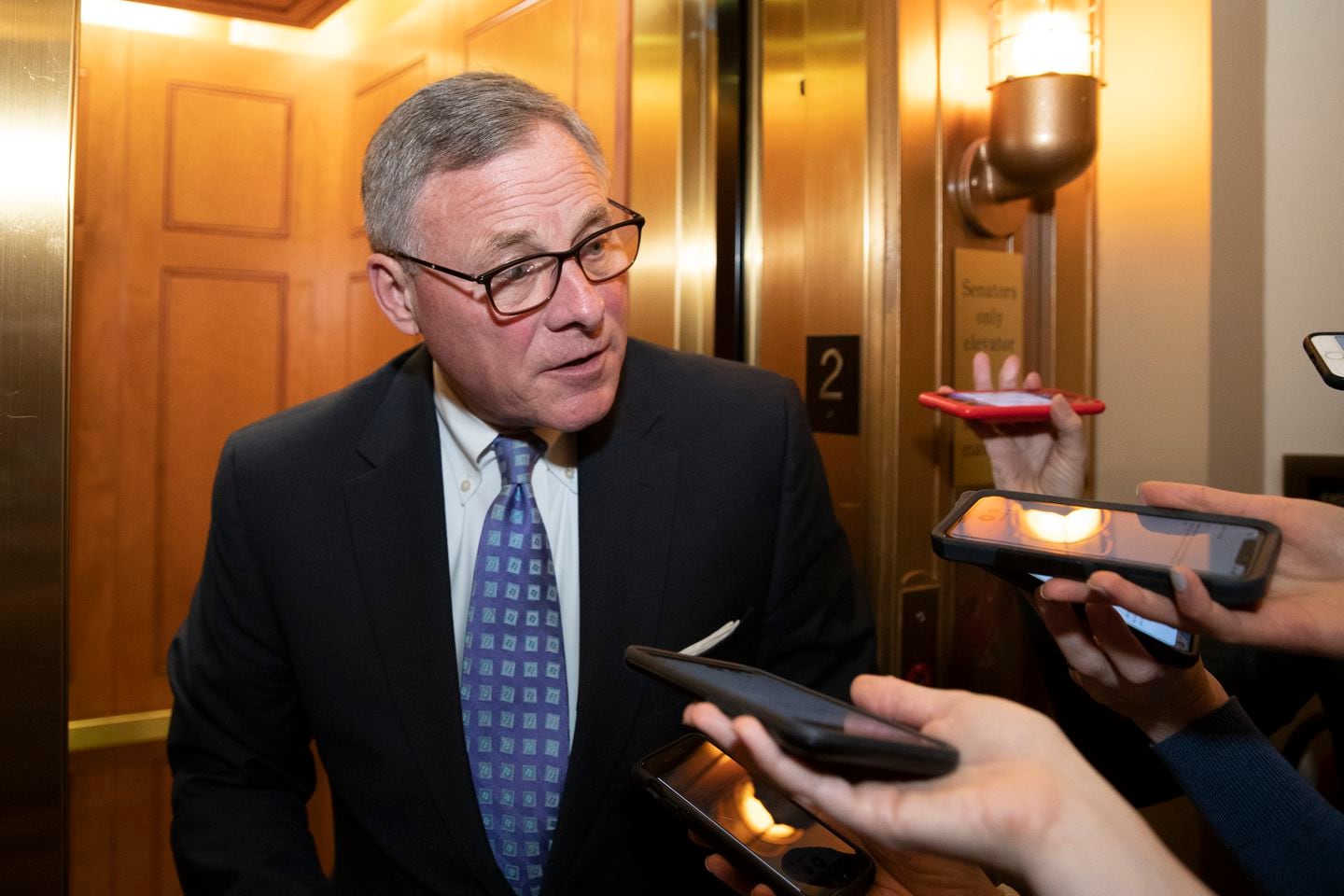Burr said he relied solely on public news reports for the sales but asked Senate Ethics Chairman James Lankford (R-Okla.) for a review.
“Understanding the assumption many could make in hindsight however, I spoke this morning with the Chairman of the Senate Ethics Committee and asked him to open a complete review of the matter with full transparency,” Burr said in a statement.
The sales included stocks in some of the industries hardest hit during the coronavirus outbreak, including those in hotels and restaurants, shipping, drug manufacturing and health care, records show. In his statement, Burr said he had relied specifically on “CNBC’s daily health and science reporting out of its Asia bureaus.”
Until about a week ago, President Trump and GOP leaders had projected optimism in the country’s ability to manage the global outbreak of the coronavirus.
The response among GOP Senate colleagues to reports Thursday of Burr’s stock sales were initially muted.
But Sen. Thom Tillis, Burr’s Republican colleague from the Tar Heel State, said in a tweet Friday that “given the circumstances, Senator Burr owes North Carolinians an explanation.”
“His self-referral to the Ethics Committee for their review is appropriate, there needs to be a professional and bipartisan inquiry into this matter, which the Ethics Committee can provide,” Tillis said.
Senate Majority Leader Mitch McConnell (R-Ky.) declined to respond to questions from reporters about the matter on Friday morning.
Beyond Capitol Hill, Burr’s actions have prompted widespread criticism, including from some conservative commentators, as well as calls for his resignation from Democrats in his home state, among others.
As head of the powerful Intelligence Committee, Burr reportedly was receiving daily briefings on the threat of the virus. He also sits on the Senate Health, Education, Labor and Pensions Committee, which received briefings on the pandemic. And he was instrumental in getting the Pandemic and All-Hazards Preparedness Act of 2006 enacted into law.
In mid-February, Burr sold 33 stocks held by him and his spouse, estimated at between $628,033 and $1.72 million, Senate financial disclosures show. It was the largest number of stocks he had sold in one day since at least 2016, records show.
Burr, who spent a decade in the House before his election to the Senate in 2004, has said his current term will be his last and that he will not seek reelection when his seat is up in 2022.
More than a decade ago, Burr drew scrutiny for another episode in which he appeared to seek to protect his own financial assets in response to hearing from government officials.
In a 2009 speech, Burr recounted how he, after hearing then-Treasury secretary Henry M. Paulson discuss a major company’s difficulty moving money between banks at the outset of the financial crisis, directed his wife to withdraw as much cash as possible from an ATM over multiple days.
The recent stock sales of several other lawmakers are now being scrutinized by media organizations in light of questions about whether they acted on information that was not broadly available at the time. Several have said that they do not personally oversee the timing of stocks in their portfolio.
Asked about such reports Friday, Trump declined to cast judgment.
“I don’t know too much about what it’s about, but I find them all to be very honorable people, that’s all I know, and they said they did nothing wrong,” he told reporters at a briefing on the coronavirus at the White House.
Citizens for Responsibility and Ethics in Washington, a federal watchdog group, announced Friday that it was filing complaints with the Senate Ethics Committee against both Burr and Sen. Kelly Loeffler (R-Ga.), another lawmaker whose recent stocks sales prompted media scrutiny.
Common Cause announced it was filing complaints with the Justice Department and Securities and Exchange Commission against Burr and Loeffler, as well as Sens. James Inhofe (R-Okla.) and Dianne Feinstein (D-Calif.).
During an appearance Friday on CNBC, Loeffler said sales by her and her husband, Jeffrey Sprecher, the chairman of the New York Stock Exchange, were made “at the decision of our investment managers” and she didn’t learn of them until well after the fact.
“Certainly I had no involvement,” Loeffler said, adding that she would welcome any scrutiny that is appropriate and has always adhered “to the letter and the spirit of the law.”
Inhofe said he did not even attend a closed Senate briefing on coronavirus that could have helped inform stock decisions. Feinstein said she was not at the briefing either and that her husband oversees the portfolio. Sen. David Perdue (R-Ga.), another lawmaker whose sales drew scrutiny, told reporters that he would be “very happy for somebody to take a look at” his transactions.
Sen. Mitt Romney (R-Utah), meanwhile, suggested that his colleagues should account for what transpired. “I’d like to hear what they have to say,” he said.
Federal officials are barred by law from using the nonpublic information they learn in their positions for their private financial gain.
Insider trading prohibitions apply to all members of Congress, congressional staff and other federal officials, under the Stop Trading on Congressional Knowledge (Stock) Act of 2012. Burr was among three senators who voted against the legislation at the time.
Under the law, officials must publicly disclose stock sales within 45 days of the transaction. Though the reported date of the 33 transactions in Burr’s financial disclosure is Feb. 13, it is unclear whether all the stocks were sold on that date, and Burr’s office declined to clarify.
On Feb. 7 — less than a week before the reported date of those sales — Burr played down the virus’s threat, co-writing a column with Sen. Lamar Alexander (R-Tenn.) that said that while Americans are right to be worried, the United States was “better prepared than ever before to face emerging public health threats, like the coronavirus, in large part due to the work of the Senate Health Committee, Congress, and the Trump Administration.”
Even three weeks later, GOP lawmakers and Trump continued to project confidence that the virus’s outbreak was being managed.
On Feb. 27, Trump publicly predicted that the coronavirus would one day disappear “like a miracle.”
Yet on the same day, Burr attended the private luncheon on Capitol Hill sponsored by North Carolina business leaders and warned attendees of some consequences of the coronavirus that have since materialized.
“There’s one thing I can tell you about this: It is much more aggressive in its transmission than anything we have seen in recent history,” Burr said, according to a record obtained by NPR and aired Thursday. “It’s probably more akin to the 1918 pandemic.”
Mike DeBonis and Paul Kane contributed to this article.

















